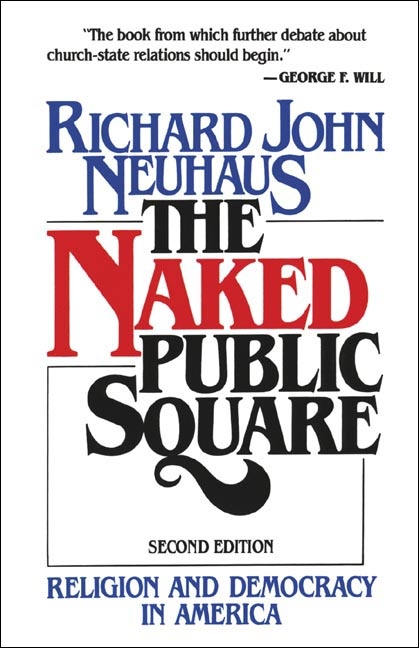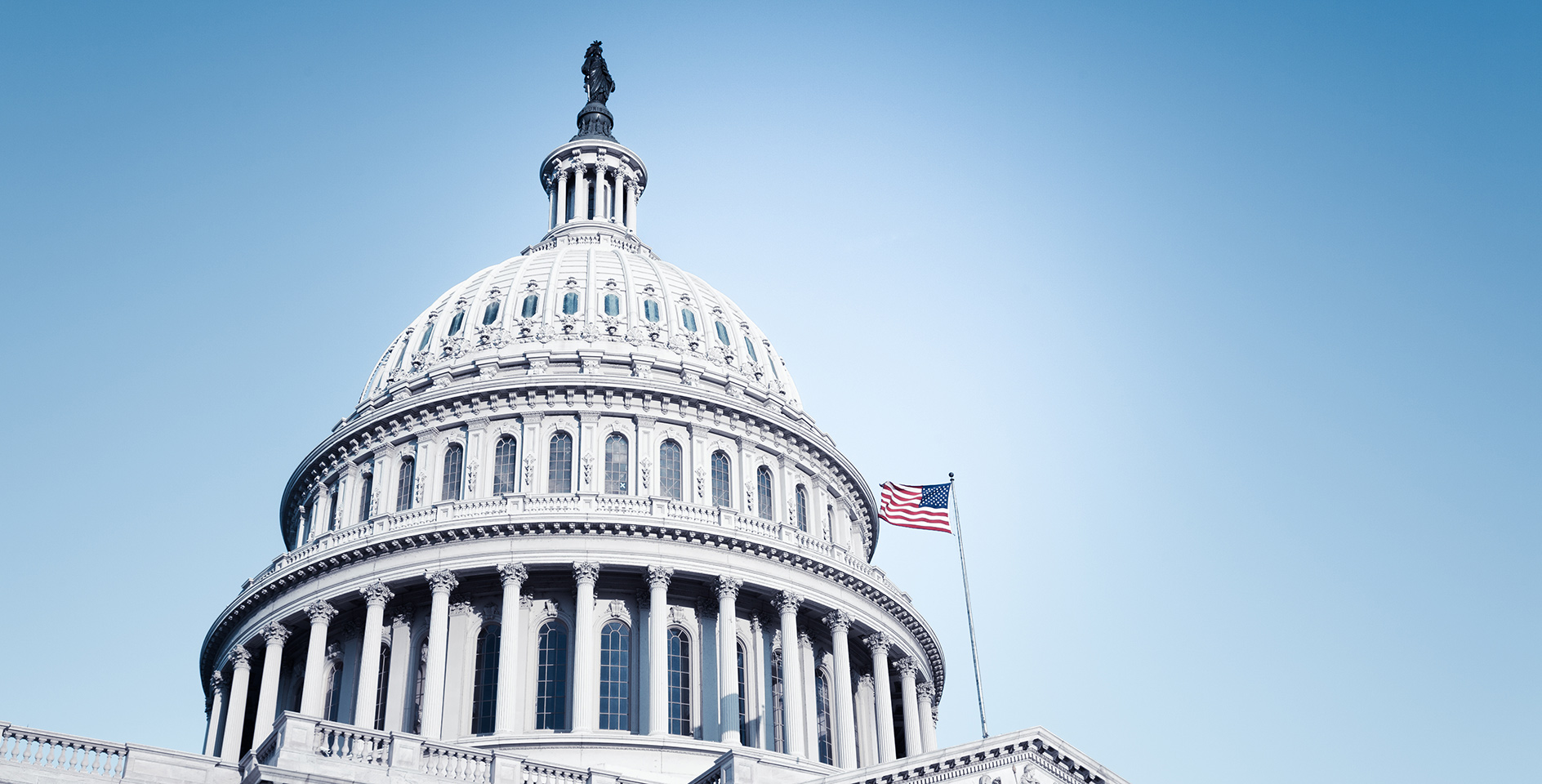“As an atheist, I respect natural law. Christians have to deny basic laws of nature and deceive their own common sense in order to maintain their belief.”
—James Sansom, “Letter to the Editor,” News and Observer (Raleigh), 8 October 2006
How should evangelicals wishing to restore the moral foundations of public life respond to fellow citizens and self-proclaimed atheists like James Sansom, who believe that natural law supports an ethic of self-indulgence against the sort of morality we mean to restore? Should we appeal to the same philosophical system on which atheists rely, or is there a better strategy? Should the success of evangelicals engaging the public square depend on hoping supernaturally grounded moral standards can be restored by alleging no need to rely on God or supernaturalism of any kind? Or is there some more effective strategy?
I will argue that once secular society generally denies the reflected presence of divinely imposed moral standards in nature, appealing to nothing other than nature as it is can no longer be a viable strategy for reviving confidence in the possibility of discovering such standards; and that under such conditions restoring the possibility of discovering such standards depends not on alleging to agree with the irrelevance of supernaturalism, but rather on appealing directly to the reality and relevance of supernaturalism for discerning the reflection of moral order in nature.
Our aim here is limited and should not be misunderstood. We are not disputing the existence of supernaturally imposed moral order in nature. We strongly affirm biblical doctrine on natural evidences justifying God’s universal condemnation of unregenerate humanity. And we believe the order of creation contains a degree of appeal that at times, with God’s help, lifts the thoughts of nonbelievers toward himself. We aim here only to address whether natural law theory is able, while denying the necessity of faith in anything supernatural, to secure common ground sufficient to restore moral foundations required to sustain social order. More especially, we mean to address the viability of using natural law on atheistic terms as a strategy for defending moral standards in the public square at a time when most deny the possibility of discovering in nature any reason for restraining natural passions.
Resurgent Interest
Our reason for addressing this issue comes from a surge of recent interest in natural law theory that includes some vigorous evangelical champions. Roman Catholics have long promoted natural law theory, and their ranks today include Robert George of Princeton University, John Finnis of the University of Notre Dame, George Weigel of the Ethics and Public Policy Institute, Timothy Fuller of Colorado College, Supreme Court Justice Clarence Thomas, Richard John Neuhaus of First Things, and more recently J. Budziszewski of the University of Texas.
Other traditional champions include an assortment of secular humanists with roots in evolutionary naturalism, Freudian psychology, and anti-supernatural libertarianism. Recent advocates in this category include the aging Hugh Hefner whose ethic of sexual indulgence relies on “a sense of connection to . . . nature on this planet,”[1] and in some sense Peter Singer of Princeton University who sees nothing in nature making sex with animals “an offense to our status and dignity as human beings.”[2] These also include Andrew Sullivan, the homosexual advocate who just wrote a book arguing that natural law justifies “a diversity of moral sexual experience and identity” because, “by empirical observation, Homo sapiens is a moderately adulterous species, made up primarily of mildly unfaithful male-female couples with a small minority of same-sex coupling.”[3]
Now joining secular humanist and Catholic proponents is a growing number of evangelicals, who suggest forsaking historic Protestant skepticism toward natural law theory in hope of finding a strategy for restoring moral foundations in Western culture without revealing faith in God or the supernatural. This development is dividing evangelicals into skeptical traditionalists and optimistic revivalists. On the one hand, evangelicals defending traditional Protestant skepticism toward the efficacy of natural law theory include R. Albert Mohler of Southern Seminary,[4] and John Warwick Montgomery of the International Academy of Apologetics, Evangelism and Human Rights,[5] both of whom maintain Carl F. H. Henry’s vigorous opposition to evangelicals reducing moral witness in the culture to the philosophical naturalism of secular approaches to natural law.[6] On the other hand, evangelicals seeking to rehabilitate strategic reliance on natural law theory for engaging secular culture include R. C. Sproul of Ligonier Ministries,[7] Norm Geisler of Southern Evangelical Seminary,[8] David Jones of Covenant Seminary,[9] Chuck Colson of Prison Fellowship,[10] and most recently Stephen Grabill who just completed a book on Rediscovering the Natural Law in Reformed Theological Ethics.[11]
No Simple Definition
When it comes to evaluating natural law theory, the most critical task is always first to define what one means, and that is neither simple nor easy. Most start by acknowledging the enormous range and consequent difficulty of capturing the entire corpus within a single definition. Arthur Harding, in Origins of the Natural Law Tradition, says “concepts of natural law are almost as varied as are the philosophical systems which have been evolved in the history of Western civilization.”[12] Daniel O’Connor, in Aquinas and Natural Law, thinks “various versions of the doctrine differ so much both in their detail and in their philosophical bases that it is very misleading to talk of the theory of natural law.”[13] And Carl Henry says that natural law means so many different things to so many different people some have argued natural law has no “precise content” and “changes with an evolving society.”[14] Furthermore, natural law has always involved a collection of ideas, with no one version accepting all associated ideas, and with no overarching principle of coherence—other than referring in some way to “nature” and “law”—uniting all conceptions within a single conceptual frame.
This makes natural law, not just difficult, but impossible to define without proposing something either totally innocuous or limited to less than everything associated with natural law tradition as a whole. Either we must define natural law so broadly as to involve no fixed content or metaphysic—a definition on the order of anything referring to nature and morality any way at all—or we must propose a definition that knowingly covers less than absolutely everything associated with the development of natural law theory. Here we shall steer a middle course by starting with a definition recognizable to evangelicals, but interacting in the end with conceptions ranging beyond the confines of our less than comprehensive initial definition.
Unless stated otherwise, what we mean by natural law shall refer to a combination of the following ideas: that some sort of moral ideal or ethical law exists by which civil laws can be evaluated; that this moral ideal or ethical law is in some way present in nature or the natural order of things; that what this moral ideal or ethical law demands is knowable in some natural way (by reason, or intuition, or experience, or sensation) by men in their natural state (apart from revelation, regeneration, or specialized training); and that what this moral ideal or ethical law requires may or may not be the same for all people, for all time, in all places. But in offering this definition, we openly admit that not all variations of natural law theory accept these elements, and that some variations view natural moral standards as being entirely subjective, relative, individual, and sensual, or to involve no fixed content of any sort.
Divided Streams
Even starting with a less than comprehensive definition maintaining a semblance of confidence in moral objectivity, it is nevertheless clear that proponents of natural law through history divide into profoundly irreconcilable streams over whether the principle by which one determines what is normative in nature is itself part of nature, or is beyond nature and only reflected in nature. That is, whether the morally normative in nature involves nothing more than describing what occurs in nature, or consists of purposes or directions coherent with plans for how nature should work, and in reference to which one may evaluate natural occurrences as either good or bad. In discussing these streams, we shall refer to versions deriving norms from nothing but nature as naturalist, and to those relying on a source beyond nature as supernaturalist.
Despite differing on other matters, Protagoras and Socrates both took a naturalist view of natural law. Protagoras once famously asserted: “man is the measure of all things—of things that are, that they are, and of things that are not, that they are not.”[15] He was not sure if gods exist, but he was certain that if gods do exist they are no help when it comes to moral knowledge.[16] And while Socrates may have regarded gods more favorably, he did not think their existence had any bearing on moral knowledge. Socrates held that all men possess a sense of justice by virtue of human nature, and can know what justice requires by just examining their natural desires. Plato therefore credits Socrates with arguing that “no one goes willingly toward the bad . . .; neither is it in human nature to want to go toward what one believes to be bad instead of to the good.”[17] Protagoras and Socrates were naturalists because neither relied on the supernatural, holding that nature alone provides its own standard of moral valuation.
But while Protagoras and Socrates were naturalists, it appears that most ancient Greeks held a supernaturalist version of natural law. At least from Thucydides we know that the ancient Athenians invoked a supernaturalist version of natural law to justify conquering weak neighbors. When the people of Melos tried maintaining independence by appealing to natural conscience, the Athenians responded that, “of the gods we hold the belief, and of men we know, that by the necessity of their nature, wherever they have power, they always rule.”[18]
Seeing the difficulty Socrates had resisting the subjectivity of Protagorian sophistry, Plato rejected naturalism in favor of supernaturalism, but on other terms than used to justify Athenian oppression of weak neighbors. For Plato, morality in nature was a matter of finding happiness by reaching the proper balance between sensual (material) and intellectual (non-material) pleasures. But rather than trust the subjectivity of human perception, Plato anchored the objectivity of natural morality, not in nature as it is, but in something beyond nature. He argued that knowing the right balance for attaining human happiness does not come from perception, experience, or even observation of nature itself, but from conforming natural experience to supernatural standards, or Forms, that exist independent of this world and are only reflected in human experience. But while Plato avoided moral subjectivity by fixing standards of natural law in supernatural Forms, he did not rely on supernatural revelation and developed a view of natural law justifying totalitarian control of religion, work, education, sex, and the smallest details of family life.[19]
After Plato, Aristotle developed a version of natural law that reverted once more to naturalism. Aristotle argued that what natural law requires does not come from anything beyond nature, but is all a matter of observing nature as it is. Aristotle thought that objectivity in natural law depends on assuming everything in nature has just one function regardless of human ingenuity; and because he thought nature shows there are different sorts of human nature Aristotle justified slavery and argued that freeing slaves is immoral. “It is clear,” he said, “that some men are by nature free, and others slaves, and that for these slavery is both expedient and right.”[20] Then after Aristotle, Epicurus took naturalism a step further by reducing natural law to sensuality arguing that, “if you fight against all your sensations, you will have no standard (in nature) to which to refer and thus no means of judging even those sensations which you pronounce false.”[21]
When Thomas Aquinas rediscovered Aristotle in the 13th century, he developed another version of natural law theory, this one based on biblically grounded supernaturalism, rather than Aristotle’s scientific naturalism.[22] Unlike Aristotle, Aquinas did not think nature itself unrelated to anything supernatural could be regarded as the origin of moral truth. Rather he said, “the light of natural reason, whereby we discern what is good and what is evil, which pertains to the natural law, is nothing else than an imprint on us of the divine light.”[23] But while Aquinas thought that men see enough of God’s moral reason in nature to guide them toward standards required for earthly happiness, he cautioned that “human reason is not itself the rule of things.” It was only a skill men have by nature to perceive principles “contained in the eternal law” of God.[24] This meant that for Thomas what the natural law contains is checked, clarified, and validated by biblical revelation, so that moral cooperation with non-Christians depends on whether and to what extent non-Christians see in nature what Christians are able to verify according to the Bible.
In the 16th century, John Calvin reaffirmed how Aquinas identified moral laws in nature with the everlasting moral law of God.[25] Calvin believed there is in all reality just one moral law, and therefore “the law of God which we call the moral law is nothing else than a testimony of natural law and of that conscience which God has engraved upon the minds of men.” But Calvin did not share the confidence Aquinas had in the sufficiency of fallen humanity to run a just society on the basis of natural reason without guidance and correction from the supernatural. He believed that, while “the purpose of natural law . . . is to render men inexcusable,”[26] this does not mean unregenerate men, left to themselves, can ever accurately comprehend—much less accept —the sort of moral grounds necessary to secure civil happiness. For Calvin, sin so thoroughly obscures the natural use of human reason, we must have God’s “written law to give us a clearer witness to what was too obscure in the natural law.”[27]
Calvin therefore argued that men have by nature enough moral knowledge to justify God’s wrath, but not enough ever to provide accurate knowledge even in regard to standards relating to “the preservation of society.” He explains that “we quite fail to take our concupiscence into account. For the natural man refuses to be led to recognize the diseases of his lusts. The light of nature is extinguished before he even enters upon this abyss.”[28] Calvin therefore held that by natural reason men never truly discern, or desire, or will what is morally good and right apart from supernatural intervention of the Holy Spirit.[29] So while Calvin maintained a version of natural law, its moral content was supernatural, its standards could not be discerned by men apart from the Holy Spirit, and therefore could not be used to secure common moral ground with any non-Christian much less those who deny supernaturalism entirely.
Other than those who have continued debating the approaches developed by Aquinas or Calvin,[30] the history of natural law theory since the 16th century is characterized by steady decline into ever more narrow versions of naturalism resulting in less and less confidence in the possibility of grounding moral objectivity in nothing more than natural observation or experience.[31]
In the early 17th century, just two generations after Calvin, the Dutch jurist Hugo Grotius again reverted to defining natural law on naturalist terms. With supreme confidence in natural reason, Grotius argued the validity of natural law is not affected by what one thinks of God, because he said natural law has “a degree of validity even if we should concede . . . that there is no God, or that the affairs of men are of no concern to him.”[32] Grotius made natural law a product of autonomous reason, meaning what men think of God has no bearing on what reason judges to be natural. For Grotius, human reason was no longer only a means for discovering moral principles in nature but was the very expression of moral law itself.
After Grotius, others joined in divorcing natural law from supernaturalism. Thomas Hobbes, claimed a law of nature is “the dictate of right reason, conversant about those things which are either to be done or omitted for constant preservation of life and member, as much as in us lies.”[33] And Jean-Jacques Rousseau believed that self-love is of itself alone “always good in accordance with the order of nature.”[34] This Enlightenment version of supernaturally detached natural law venerating reason “as much as in us lies” was eventually used during the French Revolution to justify stealing whatever working class people wanted and slaughtering others, not for what they did, but for what they had. Jacques Ellul observes, “it was not for nothing that the French Revolution inaugurated the cult of the goddess Reason,” by which he means that when men think nothing transcends their own reason, nothing they think reasonable can ever be wrong.
In the 19th century, John Stuart Mill and Herbert Spencer developed yet narrower versions of naturalistic natural law. Severed from the supernatural, they found it harder than ever to justify fixed moral standards based on nothing but nature as it is. Human reason did not seem as reliable as it had. Mill denied that we should assume nature even requires a unitary principle connected with human reason. He decided that natural laws are nothing more than laws of nature (observable regularities), that moral judgments based on natural law are nothing more than descriptions of what merely occurs in nature, and that consequently faith in humanity should replace “the supernatural religions.”[35]
At the same time, Herbert Spencer reduced natural law to evolutionary naturalism, in the process erasing distinctions separating human from animal life and rejecting all support for thinking society should assist its weaker members. According to Spencer, the only moral law in nature is the “law of natural selection” voiced by Charles Darwin that nature favors “survival of the fittest.” He argued this meant there is no moral duty for stronger members of society to help anyone less fit to survive. Spencer claimed that “human justice must be a further development of sub-human justice” and therefore concluded nature requires that every less fit member of the human race be eliminated.[36]
Finally the 20th century witnessed the collapse of philosophical hope of finding any fixed moral content based on a naturalistic (non-supernatural) approach to natural law. While religious proponents continue arguing Thomistic versus Reformed versions relying on the supernatural, secularists have come to regard natural law as either having very little or no fixed content, and whatever there might be is certainly not enough to ensure social survival much less to provide a basis on which to construct truly good social order.
H. L. A. Hart developed what he called a “minimal content” naturalist version of natural law, by which he meant the only truly necessary moral content nature requires of civil law is the absolute minimum without which most people in society will stop voluntary cooperation with a legal system.[37] And Rudolf Stammler and Georges Renard both argued that with no reference beyond nature, natural law assures no fix content at all. Stammler proposed a “variable content” version,[38] and Renard a “progressive content” version,[39] with both narrowing natural law to a form able to convey any moral content at all. Stammler and Renard both reduced natural law theory to what some have called “an empty bottle decorated with a nice label,” and while these versions are hardly recognizable to evangelicals they represent what natural law has become for most secular (non-supernaturalist) proponents.
Diminishing Prospects of Non-supernaturalism
Once more, our purpose in tracking the divided history of natural law theory has nothing to do with disputing the actual reflection of God’s moral order in creation, nor with natural evidences sufficient to justify God’s condemnation of sinners, nor with the enduring reality of divinely imposed moral conscience in all members of the human race regardless of experience, culture, place or time. Rather our aim is only to observe what has in fact happened through history once proponents reject the need and then the possibility of relying on anything supernatural. We will now consider how this history affects prospects for employing naturalist (non-supernatural) versions of natural law to recover moral ground rejected by secularists.
It is hard to ignore how through history, once proponents of natural law deny relying on the supernatural, they have lost ever more hope of finding common moral ground with super-naturalists. From Protagoras to Spencer, from Aristotle to Stammler, naturalists have slid from agreeing on basic standards sufficient to assure civil happiness, to only discovering laws of individual survival, to denying they can discover any fixed standards at all. Over this same history, naturalist proponents have also claimed that what they find in nature justifies slavery, slaughtering the innocent, making lying a moral virtue, and exterminating weak or needy members of the human race. For those understanding the full sweep of natural law through history, it is hard to avoid noticing how rejecting the supernatural severs natural law from moral objectivity so that approaching natural law on naturalist (non-supernatural) terms necessarily degenerates into ethical naturalism and subjective reliance on sensuality. From a purely naturalist (non-supernatural) point of view there is no basis for distinguishing moral laws in nature from regularities of nature. Without the supernatural, natural law reduces to ethical naturalism because moral judgment based on nothing but nature can never justify anything more or less than what-ever we happen to see, feel, or experience in nature.
Acknowledging this degeneration of natural law without the supernatural does not mean that evangelicals should never use natural law theory for defending common moral ground with naturalists. Rather it illuminates when, and to what degree, natural law arguments are effective with naturalist proponents. Jacques Ellul suggests the viability of natural law for defending common ground with naturalists depends on the state of religious-moral decline in surrounding culture. Remember here that we are not questioning the reality of God’s moral order reflected in creation, but only the usefulness of natural law theory for securing common ground with those who deny the supernatural.
What Ellul observes is that the power of using natural law for establishing common moral ground with naturalists diminishes with the religious-moral decline of surrounding culture. So long as most believe in God or the dependence of nature on supernatural reality, there will be significant agreement on moral standards justified by appealing to natural law. Non-Christians and Christians will for a while agree on common standards discoverable in nature without seem-ing to require faith in anything beyond nature. But after most in the culture lose faith in God and deny nature depends on anything supernatural, it becomes increasingly difficult for naturalists to agree on any fixed morality, and increasingly difficult for Christians to find common moral ground with non-Christians relying on nothing more than nature as it is.
In describing the pathology of philosophical thinking on law, Ellul observes several stages by which societies lose ability to establish common moral ground based on naturalist (non-supernatural) versions of natural law. First, denying that natural law depends on more than nature makes it impossible for the social order to evaluate law (whether natural or civil) by anything other than itself, and law “becomes purely a combination of technical rules.”[40] Second, having lost ability to recognize the authority of anything beyond what exists, juridical technique falls victim to whatever power insists on controlling it.[41] Third, recognizing no authority beyond itself, the state claims absolute authority over all aspects of law. When this happens, the state becomes “judge of the law” and is no longer “judged in its actions by the law.”[42] Fourth, when the state transcends law, the law it requires “gradually ceases to be observed and respected.” Citizens no longer cooperate voluntarily, penalties are tightened, the police system grows, and society falls into chaos.
At the fifth stage, Ellul notices that attempts are made “artificially to revive natural law, with the hope of bringing law back to life.” But these are doomed to fail. There is, he says, “a point of no return” at which denying the supernatural joins failing ability to ever agree on discovering moral norms in nature as it is.[43] At this stage naturalist appeals to natural law theory are completely ineffective. Non-believers no longer reconsider what they think of nature based on nothing other than nature. At this final stage, Ellul observes that restoring moral order will not occur apart from renewing a general level of faith in God. He explains that spiritual and moral corruption sinks to a level at which recovery requires a new civilization, and “the birth of a new civilization can only originate in the will of God.”[44] What Ellul means is that faith in the power and reality of moral standards strong enough to establish reliably just social order depends on supernaturalism, and only faith in the moral authority of God can check and replace the inclinations of men who think they create law for themselves, are superior to whatever laws they create, and are therefore immune from criticism based on law.
Reducing Evangelical Expectations
This suggests evangelicals must resist too easily assuming natural law can be an effective strategy for persuading secularists to restore acceptance and commitment to moral foundations the culture has long since rejected. The problem with natural law for building or maintaining common ground with naturalists in a postmodern age is that supernaturalists cannot use natural-ism (denying the necessity of believing in anything more than nature as it is) to persuade naturalists to accept the supernatural. Those who rely on more than nature cannot use nothing but nature to persuade those who deny anything more than nature to accept what depends on more than nature. If an ethical naturalist denies he can see in nature any reason for restraining natural passions, he will never be persuaded to change that opinion by appealing to nothing more than that very nature in which he sees no reason for restriction. Such thinking will not change without referring to something, or someone, greater than nature, an authority by which natural sensations, experiences, and observations can be evaluated for worth and legitimacy.
Without confidence in the supernatural, natural law loses touch with moral objectivity on its way to indulging whatever passions are aroused by natural sensation and experience. To remain connected with universally fixed moral objectivity independent of human control, natural law requires more than naturalism. It must rely on something more than natural experience or mere nature as we find it. It requires the supernatural. But if so, those who espouse employing natural law in secular settings cannot maintain irreconcilable claims. They cannot use the supernatural to secure their own confidence in the universal objectivity of moral standards, while at the same time alleging it requires no such thing of others.
Once nonbelievers in secular culture reject traditional moral norms as alien to natural passions, it becomes impossible—not just difficult but impossible—to restore their acceptance of traditional norms by appeal to nothing more than nature as it is. At this point, natural law has no power to restrain moral decline in surrounding culture, and evangelicals hoping to restore respect for lost moral standards must use a different strategy—one that does not deny relying on more than nature, one that points men to their supernatural creator, one that promotes civil happiness, justice, and social stability by appealing directly to Jesus Christ but doing so in ways that respect the right all have to convince others based on whatever they are convinced to be right and true.
Evangelicals must realized that, in a post-Christian, postmodern context, restoring moral foundations sustaining civil happiness will not come from relying on natural law on terms deny-ing the supernatural, but rather from appealing to the supernatural origin whose laws permeate nature. We must not forget Carl Henry’s answer to the question: “What moral power, then, can serve as a potent restorative and cohesive social force?” With him, evangelicals must continue to say, “Nothing other than respect for the commandment of God given at the creation of the human race. It is not by reading the entrails of evolutionary nature but by recognizing anew the Divine Valuator and a recovery of the imago dei that law will regain its power.”[45]
[1]. Ronald Bruce Meyer, “Hugh M. Hefner and Playboy (1953),” available at www.ronaldbrucemeyer.com, December 10, 2004.
[2]. Peter Singer, “Heavy Petting,” available at www.Nerve.com, March 12, 2001.
[3]. Andrew Sullivan, The Conservative Soul (New York: HarperCollins, 2006), 97.
[4]. R. Albert Mohler argues that “to revert to natural law reasoning is to retreat from the high ground of the Christian truth claim,” and warns “it is not possible for evangelicals to adopt natural law reasoning as a basis for moral argumentation and remain authentically evangelical.” R. Albert Mohler, “Homosexuality in Theological Perspective, Part Four,” available at www.gender-news.com, October 6, 2005.
[5]. John W. Montgomery says that “natural law theory cannot hold up because, in different cultures there are different values.” He asserts “There is no simple set of values that is universally accepted.” Quoted by Michelle Vu, “Human Rights, Christianity Inseparable, Says World Renown Apologist, The Christian Post (6 February 2006).
[6]. Carl F. H. Henry, “Natural Law and a Nihilistic Culture,” First Things (January 1995): 54-60.
[7]. Remarks made while speaking at the inaugural meeting of the “Faith and Law Group” on Capitol Hill, Washing-ton, D.C., about 1988 (attended by the author of this paper). Also see “Natural Theology and Science” in R. C. Sproul, Defending the Faith (Wheaton: Crossway, 2003).
[8]. Norman L. Geisler and Frank Turek, Legislating Morality (Minneapolis: Bethany House, 1998).
[9]. David C. Jones, “Neither Warfare nor Withdrawal,” Covenant 10/2 (Spring 1995): 6.
[10]. Colson says, “Belief in natural law—whether one believes that law is God-given or exists on a more intuitive level—is the only real basis we have to support moral positions.” Charles W. Colson, “Self-Evident Truth,” Jubilee (February 1992).
[11]. Stephen J. Grabill, Rediscovering the Natural Law in Reformed Theological Ethics (Grand Rapids: Eerdmans, 2006). Grabill accuses evangelicals of lacking critical moral discernment on contemporary moral issues, and argues this can be rectified only by reappropriating “Aristotelian philosophy and natural-law.” See Stephen J. Grabill, “Evangelicals and the Brave New World: Why Natural Law Can No Longer Be Ignored,” available at www.freerepublic.com, September 6, 2006.
[12]. Arthur L. Harding, ed., Origins of Natural Law Tradition (Port Washington: Kennikat Press, 1954), v.
[13]. Daniel John O’Connor, Aquinas and Natural Law (London: Macmillan, 1967), 57.
[14]. Henry, “Natural Law and a Nihilistic Culture,” 54.
[15]. Protagoras, Truth or Destruction, fragment 1. Also in Diogenes Laertius, Lives of Eminent Philosophers, 9.51.
[16]. Protagoras, About Gods, fragment 4. Also in Diogenes Laertius, Lives of Eminent Philosophers, 9.53.
[17]. Plato, Protagoras. In Plato: Complete Works, ed. by John M. Cooper (Indianapolis: Hackett, 1997), 787.
[18]. Thucydides, History of the Peloponnesian War, 5.105.2.
[19]. See Plato’s Republic.
[20]. Aristotle, Politics, 1255.a.1-3.
[21]. Diogenes Laertius, Lives of Eminent Philosophers, 10.146.
[22]. See Daniel John O’Connor, Aquinas and Natural Law (London: Macmillan, 1967).
[23]. Thomas Aquinas, Summa Theologiae, Q 91.2.
[24]. Ibid., Q 91.3.
[25]. See William Klempa, “John Calvin on Natural Law,” in John Calvin and the Church: A Prism of Reform, ed by Timothy George (Louisville: Westminster/John Knox, 1990).
[26]. John Calvin, Institutes of the Christian Religion, 2.2.22.
[27]. Ibid., 2.8.1.
[28]. Ibid., 2.22.24.
[29]. Ibid., 2.22.25-27.
[30]. The highlight in the evolution of this ongoing discussion is perhaps Emil Brunner and Karl Barth, Natural Law (“Nature and Grace,” by Emil Brunner, and the reply, “No!” by Karl Barth), trans. by P. Fraenkel (London: Geoffrey Bles, Centenary Press, 1964).
[31]. It is often observed of rationalists of the 17th and 18th centuries who severed natural law from supernaturalism, that “far from establishing a new era of human liberty, [they] actually set the stage for a process of deterioration which, if unchecked, will destroy the very liberty which they assert.” From Harding, Origins, 70. See also chapter 1 of Emil Brunner, Justice and the Social Order, trans. by Mary Hottinger (New York: Harper, 1945).
[32]. Hugo Grotius, De iure belli ac pacis (Oxford: Oxford University Press, 1925), trans. by F. W. Kelsey et al, 12.
[33]. Thomas Hobbes, The English Works of Thomas Hobbes, ed. by W. Molesworth (London: J. Bohn, 1839-1845), vol. 1, 10.
[34]. Jean Jacques Rousseau, Emile, trans. by Barbara Foxley (London: Dent, 1974), vol 4, 174.
[35]. John Stuart Mill, Three Essays on Religion (London: Longmans, Green, Reader, and Dyer, 1874), 50.
[36]. Herbert Spencer, The Principles of Ethics (London: Williams and Norgate, 1892-1893), part 4, 17.
[37]. See H. L. A. Hart, The Concept of Law (Oxford: Oxford University Press, 1961), 189-195.
[38]. Rudolph Stammler, Wirtschaft und Rect (Leipzig: Veit, 1914).
[39]. Georges Renard, Le droit, l’ordre et la raison (Paris: Recueil Sirey, 1927).
[40]. Jacques Ellul, The Theological Foundation of Law (Garden City: Doubleday, 1960), 31.
[41]. Ibid., 32.
[42]. Ibid., 33.
[43]. Ibid., 35.
[44]. Ibid., 35-36.
[45]. Henry, “Natural Law and a Nihilistic Culture,” 60.










